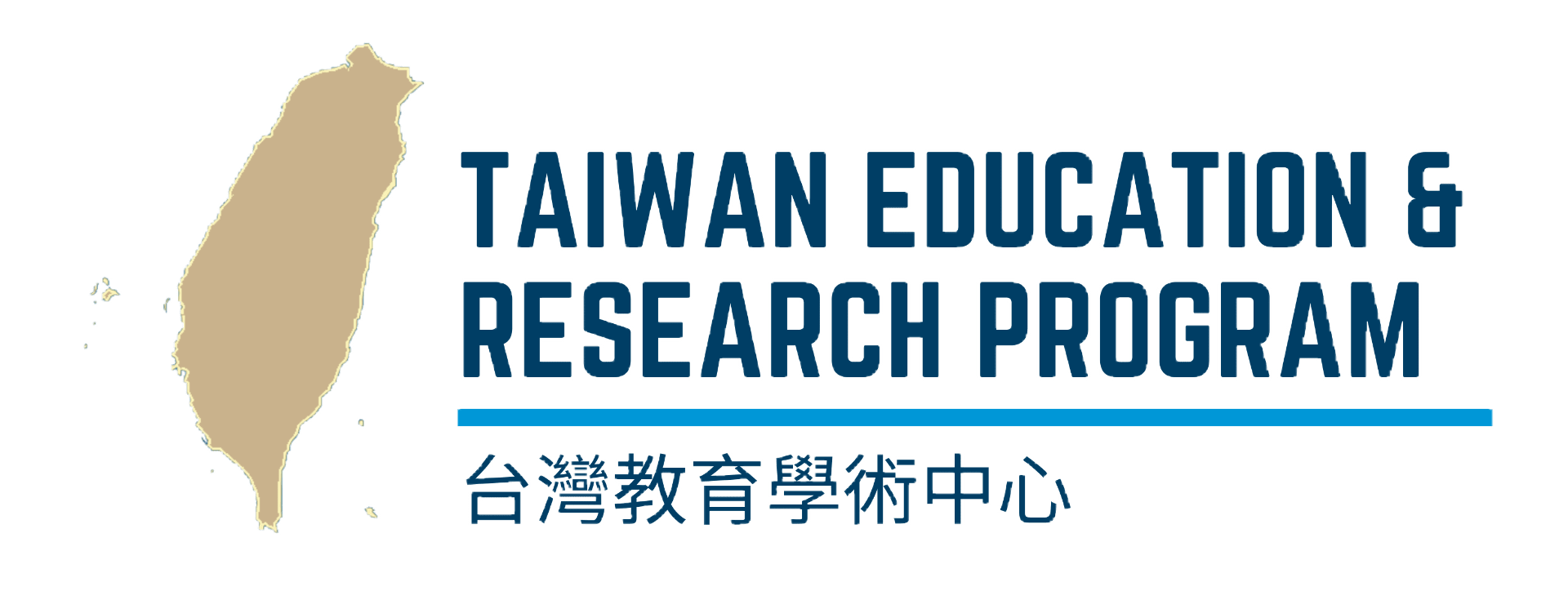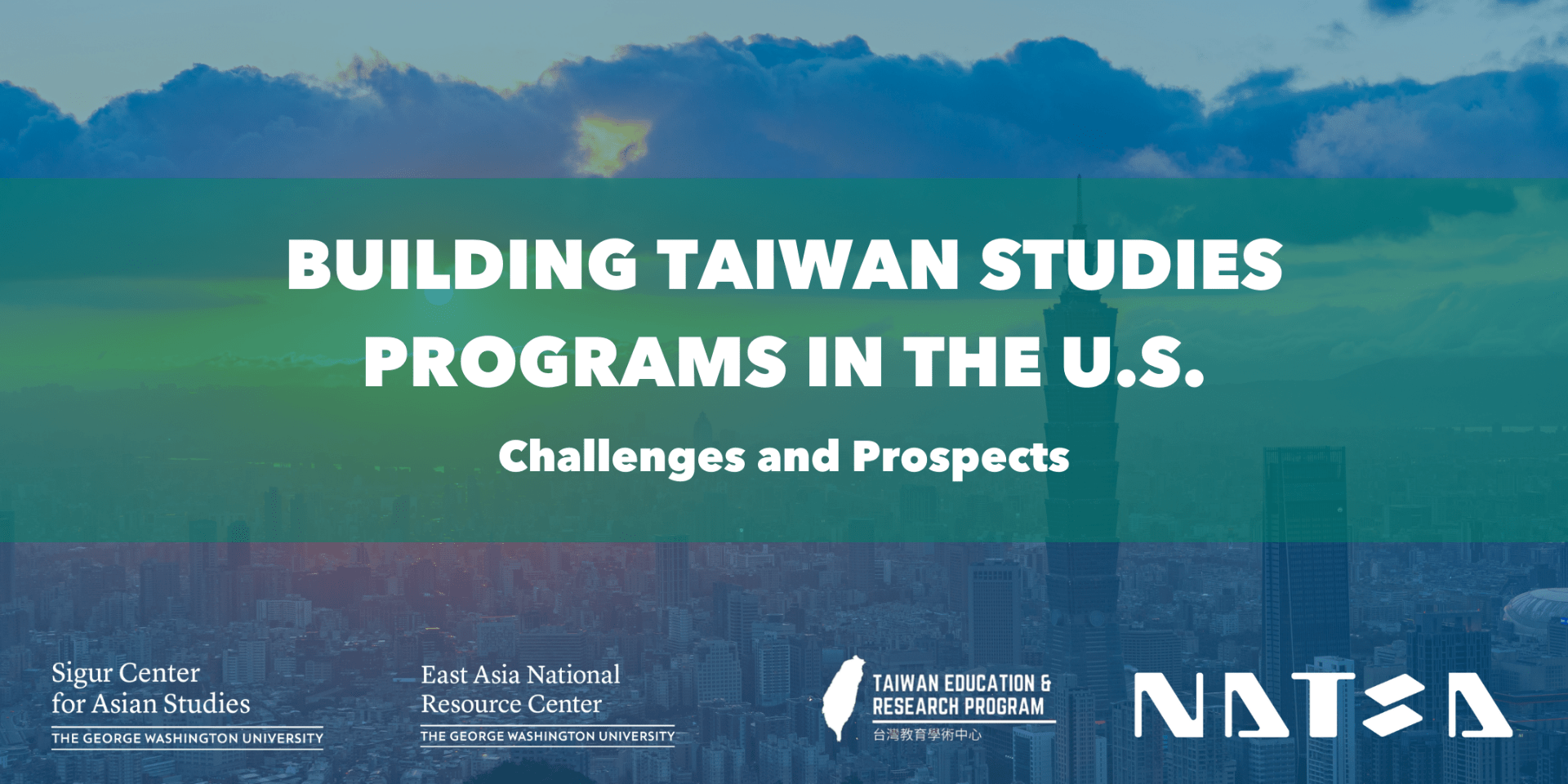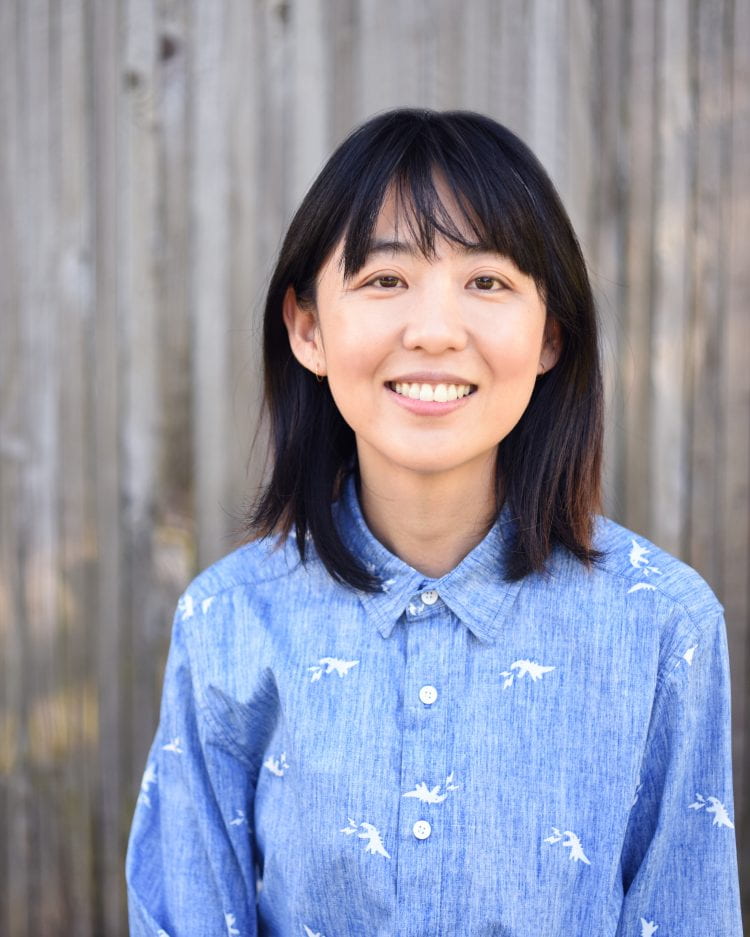Sunday, July 10, 2022
4:00 PM – 5:30 PM EDT
Lindner Commons (RM 602)
Elliott School of International Affairs
1957 E ST NW, Washington, DC 20052
AND Online
In recent years, greater attention has been given to U.S.-Taiwan educational and cultural exchange. In December 2020, the U.S.-Taiwan Education Initiative was created to expand access to Mandarin Chinese and English language instruction and to deepen educational cooperation between both sides. Several Taiwan Studies centers in the United States have also received increased support to expand Taiwan Studies. Coinciding with the widespread closure of Confucius Institutes in the United States and the continuing political, economic, and security challenges concerning China, Taiwan, and the United States, there is a critical demand among scholars, policymakers, and educators for greater access to Mandarin Chinese language resources and expertise on Taiwan affairs. However, there exists a mismatch between the level of importance Taiwan has to U.S. foreign policy priorities and the level of resources that U.S. educational institutions dedicate to researching and teaching on Taiwan affairs.
The Taiwan Education & Research Program (TERP) and the North American Taiwan Studies Association (NATSA) are co-hosting a hybrid in-person and virtual panel to bring together scholars and administrators of Taiwan Studies programs in the United States for a discussion on the historical and present challenges, trends, and prospects for Taiwan Studies in academic and policymaking communities. The panel will examine the structural, social, and political factors that influence the development of Taiwan Studies programs, and how Taiwan Studies programs can serve as collaborative spaces between scholars, policymakers, and administrators.
This event is free and open to the public and media. A recording of the event will be made publicly available in the days following the event. Additional support for this event is provided by the Sigur Center for Asian Studies and the GW East Asia National Resource Center.
Panelists
- Ellen Y. Chang, Director, Arts and Culture Program, Taiwan Studies Program, University of Washington – Seattle
- Sung-Sheng (Yvonne) Chang, Professor; Director of the Center for Taiwan Studies, University of Texas – Austin
- Min Zhou, Distinguished Professor of Sociology and Asian American Studies; Director, Asia Pacific Center, University of California – Los Angeles
- Elizabeth Leicester, Executive Director, Asia Pacific Center, University of California – Los Angeles
Moderator
Richard J. Haddock, Program Manager, East Asia National Resource Center; Taiwan Education & Research Program, GW
Speakers
Ellen Y. Chang is the Director of Arts and Culture at the Taiwan Studies Program at the University of Washington and a Ph.D. Candidate in Cinema & Media Studies. As a simultaneous film scholar and art curator/practitioner, her research examines the transactional encounter among contemporary Taiwanese video art/installation, cinema, and popular culture as processes of aesthetic decolonization. Her recent work on sound and audio walks explores more engaged, sensitive, and practical understandings of how audiovisual art reflects (re-)occurring themes of everyday politics across international geographies. She received her B.A. in English from National Central Taiwan University, M.A. in Film Studies from Ohio University, and M.A. in Cinema Studies from New York University.
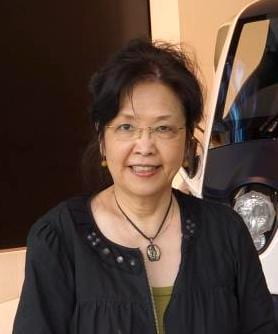
Sung-Sheng (Yvonne) Chang is a professor in the Department of Asian Studies and the Program in Comparative Literature at the University of Texas at Austin. She is also currently the Director of the Center for Taiwan Studies at UT-Austin. Dr. Chang is the author of Literary Culture in Taiwan: Martial Law to Market Law (Columbia University Press, 2004) and Modernism and the Nativist Resistance: Contemporary Chinese Fiction from Taiwan (Duke University Press, 1993). Dr. Chang is a co-editor of The Columbia Sourcebook of Literary Taiwan (Columbia University Press, 2014) and Bamboo Shoots After the Rain: Contemporary Stories by Women Writers of Taiwan (Feminist Press, 1990). Dr. Chang’s articles have appeared in journals, edited volumes, and anthologies in English and Chinese. Dr. Chang was the President of the Association of Chinese and Comparative Literature (ACCL) in 1999-2000 and has served on a dozen editorial boards and held offices in scholarly organizations. She received her B.A. from National Taiwan University, M.A. from the University of Michigan, and Ph.D. from Stanford University. She has also taught or visited at National Taiwan University, University of Kansas, National Tsing Hua University, Fu Jen Catholic University, National Cheng Kung University, Xiamen University, and the Institute of Chinese Literature and Philosophy at Academia Sinica.
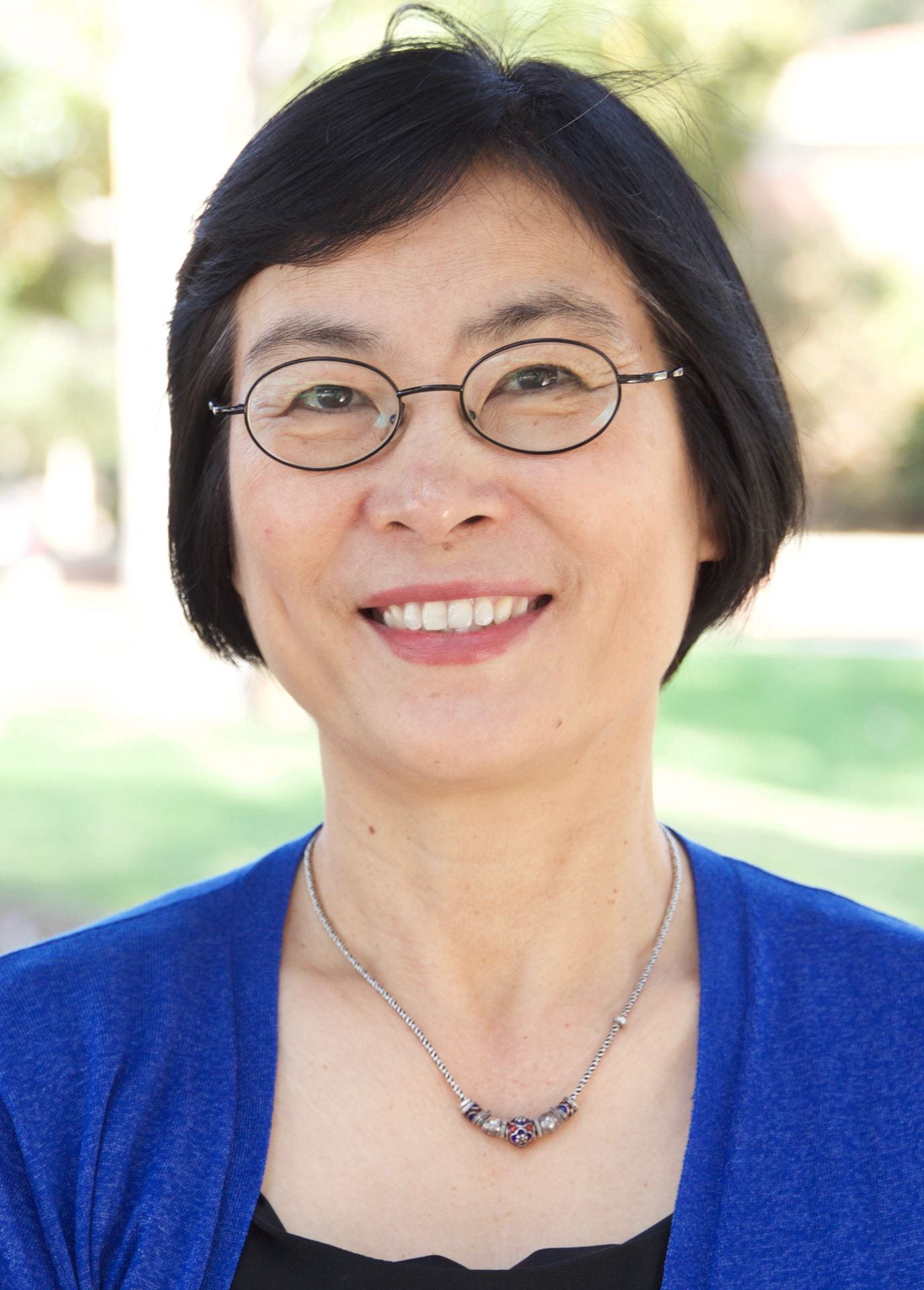
Min Zhou is Professor of Sociology & Asian American Studies, Walter and Shirley Wang Endowed Chair in U.S.-China Relations & Communications, and Director of the UCLA Asia Pacific Center. She is an internationally renowned scholar in the areas of migration and development, race and ethnicity, entrepreneurship, refugee studies, Asian diasporas, and the sociology of Asia and Asian America. She has published 19 books and more than 200 journal articles and book chapters. She is the author of Chinatown: The Socioeconomic Potential of an Urban Enclave (1992), The Asian American Achievement Paradox (with Lee, 2015), and editor of Contemporary Chinese Diasporas (Palgrave MacMillan, 2017). Professor Zhou is also co-Editor of the Journal of Chinese Overseas. She was the President of the North American Chinese Sociologist Association, Chair of the Section on Asia and Asian America of the American Sociological Association (ASA), and Chair of the Section on International Migration of ASA. Currently, Professor Zhou is working on four projects: “Immigration, Integration and Social Transformation in the Pacific Rim,” “Inter-group relations and racial attitudes among Chinese locals and African merchants in Guangzhou and Yiwu, China,” “Chinese immigrant transnationalism and hometown development,” and “Highly skilled Chinese immigrants in Los Angeles and Singapore.” She is writing a book (with Shaohua Zhan) on contemporary Chinese and Indian immigrants in Los Angeles, Vancouver, and Singapore. She received her B.A. in English from the Sun Yat-sen University in China, and M.A. and Ph.D. in Sociology from the State University of New York at Albany.

Elizabeth Leicester is the Executive Director of the Asia Pacific Center at the University of California – Los Angeles. Leicester has a B.A. from Columbia University and an M.A. from Stanford University in East Asian Studies, as well as a C. Phil. in Japanese History from UCLA. She has done research and translations on women and gender in Japan.
Moderator

Richard J. Haddock is currently the Program Manager for the East Asia National Resource Center (NRC), which is supported by a Title VI grant from the U.S. Department of Education. He is also a member of the UC Berkeley U.S.-Taiwan Next Generation Working Group, where he is conducting a research project on the current state and future prospects of Taiwan Studies in the United States. He has worked previously at the Sigur Center for Asian Studies, the National Democratic Institute, the American Institute in Taiwan, and the U.S. Department of State. He is currently pursuing a Ph.D. in Public Policy and Public Administration at The George Washington University with a focus on digital democracy and e-governance development in the Asia-Pacific. He received his B.A. in Political Science from the University of Central Florida, and M.A. in Asian Studies from The George Washington University.


